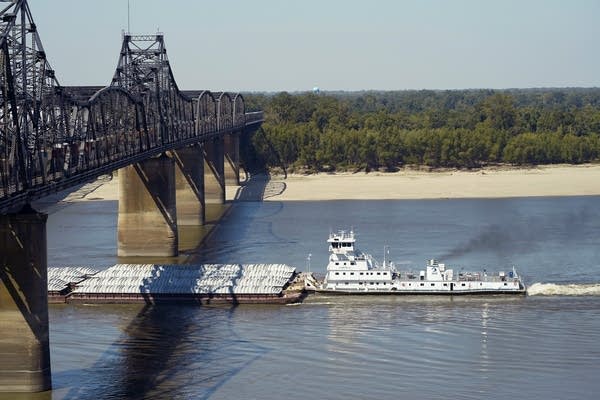As the focus of the nation centers on the more western states dealing with their drought, many seem to not mind or notice that the Mississippi River seems to be taking the current drought quite hard as it has been dealing with record low water levels and as such is seeing increased impacts across shipping movements.
The water levels throughout the Mississippi River are at their lowest they have been recorded in many decades, ac reported by officials with The Weather Channel, sparking quite a few issues with the shipping industry and the availability of drinking water in the area.
Some of the water that is making its way to the start of the river in Lousiana is reportedly allowing salt water to wash into the Mississippi river out of the Gulf of Mexico, which could end up affecting the drinking water and the water tables for the area, as reported by The Washington Post. A series of quick responses from the U.S. Army Corps of Engineers has been carried out, stating that it would create a sediment construction to block further salt water from making its way up river.
“In Plaquemines Parish, there’s many freshwater intakes for municipal, industrial uses and the salt water can cause corrosion to pipes and can cause a change in the taste of the water for municipal use, so we try to, that’s why we’re involved to mitigate that,” explained the chief of the River Engineering Branch of the U.S. Army Corps of Engineers, David Ramirez, to Fox 8 News this past month.
Record low rainfall for the Upper Mississippi and the Ohio River Valley are seemingly the prime factors that have led to the decreased water levels and the slowing down of commercial movements and river cruises throughout multiple areas south of Illinois, as reported by The Wall Street Journal. The cost to ferry materials has also spiked by a factor of two over the course of the past few weeks.
The mayor of Vicksburg, Mississippi, George Flaggs, has not seen the river hit levels this low for well over seven decades.
“It’s definitely having an impact on the local economy, because the commercial use of this river has almost completely stopped,” explained Flaggs to WAPT-TV recently.
One report coming from the National Park Service stated that the Mississippi River plays a massive role in the economies throughout the upper midwest region of the United States. Tows ships and barged move roughly 175 million tons of cargo each year around the upper area of the river.
“America is going to shut down if we shut down,” explained the chief executive of American Commercial Barge Line LLC, Mike Ellis, reported the Journal. While Lisa Parker, the spokeswoman for the Corps’ Mississippi Valley Division, explained that the U.S. Army COrps of Engineers has been taking efforts to scoop out areas of the river in order to increase its depth and allow commercial ship to make their way through the area.
“When the water gets low enough, commerce starts to slow. Commerce is restricted and it turns into an extremely difficult environment to operate,” explained the president of Golding Barge Line, Austin Golding, to WAPT. “This will actually affect us in a very negative way. We have to have less cargo on our barges and less tonnage moving. It affects our revenues.”
“We need the barges fully loaded and our tows pushing as many barges as possible to be as economically viable as possible,” concluded Golding.

